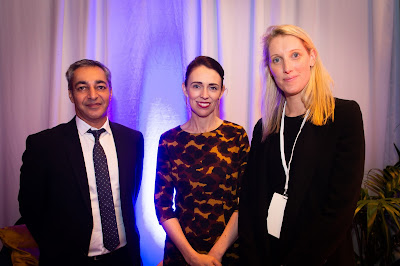Two months after the terror attack on two mosques in New Zealand, Prime Minister Jacinda Ardern and French President Emmanuel Macron led the launch of the Christchurch Call at a summit in Paris, as a commitment by Governments and tech companies to eliminate terror and violent extremist content online. Since then, at further meetings in Aqaba, Jordan and in New York at the United Nations General Assembly, we’ve seen continued work including the announcement that the GIFCT would become an independent body.
Jacinda Ardern and YouTube’s Managing Director APAC, Gautam Anand, opened the two-day workshop with an address to the attendees.
This Incident Response Workshop was the next step in the development of the Christchurch Call and it delivered on its three key objectives:
- We worked in a multi-stakeholder format and developed stronger partnerships across companies, governments, civil society and NGOs.
- We stress tested the Christchurch Call Shared Crisis Response Protocol - alongside other relevant protocols, against evolving risks and scenarios.
- We gathered critical feedback from those present, in order to inform the future agenda of the GIFCT’s crisis response working group.
YouTube was honoured to host this workshop and will continue to work together with the GIFCT, governments and civil society to tackle these issues.
Post content

